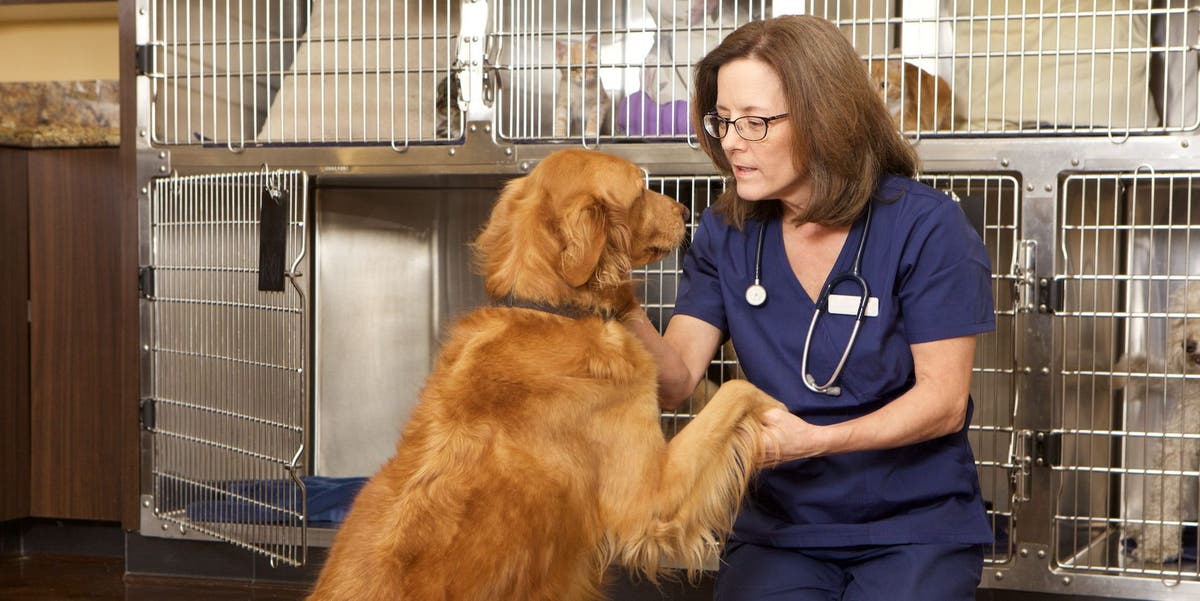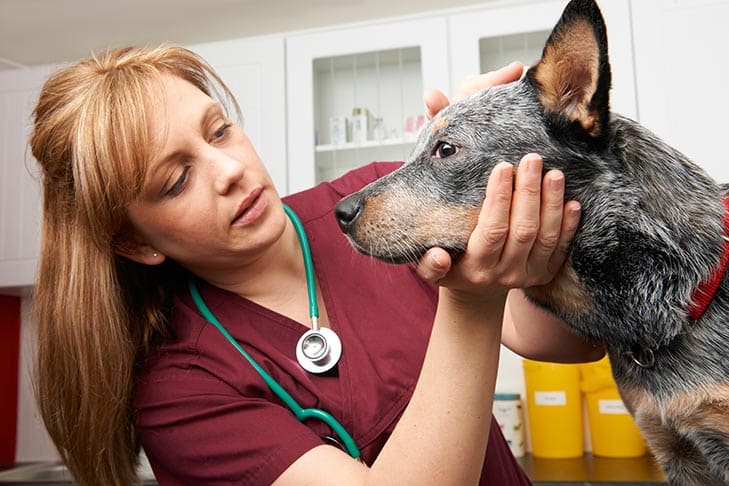Practical veterinary behaviour tips to reduce pet stress
Wiki Article
Why Every Animal Owner Must Take Into Consideration a Vet Behaviourist for Behavioral Advice
Animal ownership includes countless obligations, consisting of making sure the well-being of one's animal friend. Behavioral issues, such as aggressiveness or anxiousness, can disrupt the consistency of the home. Veterinary behaviourists offer customized competence to attend to these challenges. Their evidence-based strategies can transform bothersome behaviors. Understanding just how these professionals run and the benefits they provide can cause a more peaceful coexistence. What insights can be gotten from their methods?Comprehending the Role of a Vet Behaviourist
A veterinary behaviourist concentrates on understanding and dealing with the complex behavioural problems that pets may show. These professionals hold advanced qualifications in veterinary medicine and possess specialized training in pet practices, allowing them to examine a pet dog's conduct through a scientific lens. Their experience includes different aspects affecting behaviour, including genes, setting, and health status.Vet behaviourists conduct complete evaluations, which typically include observing the animal in different contexts and gathering in-depth background from the pet dog proprietor. They utilize evidence-based techniques to develop tailored behavior adjustment strategies, including approaches that advertise favorable behaviours while minimizing unwanted activities.
They work collaboratively with family pet owners to guarantee constant application of these approaches, highlighting the relevance of owner education in achieving behavioral objectives. By connecting the space between vet care and animal psychology, vet behaviourists play a crucial role in boosting the quality of life for pet dogs and their households.

Typical Behavioral Issues Dealt With by Veterinary Behaviourists
Veterinary behaviourists play an important role in addressing numerous behavior issues in pets. Usual problems consist of hostility monitoring techniques, anxiousness therapy techniques, and remedies for obsessive actions. Comprehending these issues is essential for improving the health of both family pets and their proprietors.Hostility Administration Techniques
Taking care of aggression in pet dogs calls for a strategic method that integrates understanding and treatment. Veterinary behaviourists commonly begin by reviewing the underlying sources of aggressive actions, such as fear, territoriality, or resource securing. Once the triggers are determined, they create tailored adjustment strategies that may include desensitization and counter-conditioning strategies. These approaches gradually subject the pet dog to the triggering stimuli in a controlled manner, satisfying tranquil habits to reshape reactions. In addition, consistent training and management approaches, such as making use of muzzles or leashes in high-stress circumstances, are carried out to ensure security. Education and learning for family pet owners is important, as recognizing canine body language and behavior can help protect against rise and advertise an unified house.
Anxiousness Treatment Approaches
Numerous pets experience anxiety, which can manifest in different forms such as splitting up stress and anxiety, noise anxiety, or generalised fearfulness. Veterinary behaviourists use a series of therapy approaches customized to each pet dog's distinct circumstances. These might include behavioral modification methods, which involve steady desensitization to anxiousness activates, aiding the animal build dealing systems in time. Ecological enrichment is additionally advised, supplying family pets with stimulating tasks to minimize anxiety. Sometimes, veterinary behaviourists might recommend making use of anti-anxiety drugs to support behavioral treatments. Furthermore, training methods concentrated on positive support can improve a pet's self-confidence and emotional resilience. Eventually, a veterinary behaviourist intends to create a complete plan to boost the animal's top quality of life and decrease anxiety-related behaviors.Compulsive Behaviors Solutions
Compulsive behaviors in family pets can significantly impact their well-being and the consistency of their family. Usual concerns include too much licking, tail chasing, or uncontrollable barking, commonly stemming from stress and anxiety or boredom. Veterinary behaviorists use different methods to resolve these behaviors. Originally, they conduct detailed assessments to identify underlying triggers. Behavior alteration techniques, such as desensitization and counter-conditioning, are often applied to alter the animal's feedback to stress factors. Additionally, enrichment activities and organized routines can assist reroute compulsive propensities. In some cases, medication may be suggested to aid in lowering anxiety degrees. By collaborating with a veterinary behaviorist, animal owners can establish efficient, customized remedies that advertise healthier behaviors and improve the overall lifestyle for their pet dogs.The Advantages of Professional Behavior Advice
Professional behavioral advice supplies pet owners a deeper understanding right into their pets' habits, promoting a much better understanding of underlying problems. With the expertise of a vet behaviorist, customized therapy plans can be developed to attend to certain concerns effectively. This individualized strategy not only improves the pet dog's wellness yet additionally improves the bond between pet dog and proprietor.Boosted Comprehending of Behavior

Tailored Therapy Strategies
A much deeper understanding of pet behavior prepares for developing customized treatment plans that deal with specific issues encountered by pets and their proprietors. Vet behaviourists evaluate board certified veterinary behaviourist the distinct qualities and requirements of each animal, taking into consideration variables such as type, age, and ecological impacts. This customized strategy allows the formula of efficient methods to alleviate behavioral problems, whether they involve anxiousness, hostility, or phobias. By applying these tailored plans, owners are equipped with sensible tools and strategies that promote positive adjustments in their pet dogs. Furthermore, ongoing analysis and modifications ensure that therapy stays effective, inevitably improving the pet-owner relationship. Spending in expert behavioral advice offers an organized pathway to address obstacles, advertising the overall health of both animals and their family members.Exactly How Vet Behaviourists Establish Tailored Treatment Strategies
When a pet displays behavior problems, creating a tailored therapy plan calls for a comprehensive understanding of the pet's one-of-a-kind situations and environment - board certified veterinary behaviourist. Veterinary behaviourists begin by conducting comprehensive analyses, including in-depth meetings with animal proprietors to gather details about the family pet's background, causes, and living conditions. Observations of the animal in various setups are likewise essentialNext off, behaviourists examine the information to recognize underlying causes, whether they stem from clinical issues, stress elements, or learned habits. Based upon this evaluation, they create individualized treatment plans that might consist of behavior alteration methods, ecological modifications, and, if necessary, medication.
Progress is very closely kept track of, with adjustments made as required to validate performance. This methodical method enables vet behaviourists to resolve the particular requirements of each animal, resulting in much better outcomes and improved well-being for both the animal and its proprietor.

Strengthening the Human-Animal Bond Through Behavioral Support
Reinforcing the human-animal bond is essential for boosting the general well-being of both animals and their proprietors, as behavioral support plays a vital function in this process. By attending to behavioral concerns, vet behaviourists help create a harmonious environment where family pets really feel protected and recognized. This specialist support enables owners to develop efficient communication methods, promoting shared count on and regard.Behavioral support can reduce stress and anxiety, stress and anxiety, and irritation in both pet dogs and their families. When animals exhibit unfavorable behaviors, it can stress partnerships, resulting in a breakdown in the bond. A vet behaviourist can give understandings and methods to change these habits, boosting the animal's lifestyle and guaranteeing owners can delight in a fulfilling companionship. Inevitably, spending in behavioral support strengthens the connection between animals and their proprietors, promoting a better, healthier household where both parties grow with each other.
When to Look for Help From a Veterinary Behaviourist
Just how can family pet proprietors identify the best time to seek help from a veterinary behaviourist? Acknowledging the indicators of behavior concerns in pets is important. If an animal exhibits extreme anxiety, aggression, or consistent destructive actions that does not improve with standard training approaches, it may be time to get in touch with an expert. Additionally, unexpected modifications in behavior, such as withdrawal or excessive barking, can show underlying stress or health and wellness troubles requiring specialist input.Pet dog proprietors ought to also take into consideration seeking aid when they really feel overwhelmed or uncertain concerning just how to handle their animal's habits properly (board certified veterinary behaviourist). A vet behaviourist can give customized strategies and support, aiding to deal with particular issues and enhancing the animal's quality of life. Ultimately, very early intervention typically causes far better outcomes, making it crucial for family pet proprietors to act without delay when behavioral concerns occur
Frequently Asked Questions
Exactly how Do I Choose the Right Veterinary Behaviourist for My Family pet?
Choosing the right vet behaviourist involves researching qualifications, seeking suggestions, and assessing experience with specific issues. Observing first assessments can additionally offer understandings right into their technique and compatibility with both the family pet and owner.Can Veterinary Behaviourists Aid With Training and Obedience Problems?
Veterinary behaviourists can efficiently address training and obedience concerns by utilizing scientifically-backed techniques tailored to private pets - veterinary behaviour. Their know-how in animal habits permits a deeper understanding of underlying problems, helping with positive behavior adjustments in family petsAre Consultations With Vet Behaviourists Covered by Pet Insurance Policy?
Examinations with veterinary behaviourists may be covered by some family pet insurance coverage, yet coverage differs widely. Pet dog proprietors should examine their details insurance policy intends to establish if these specialized examinations are included in their advantages.What Qualifications Do Veterinary Behaviourists Commonly Have?
Veterinary behaviourists commonly hold a veterinary degree, adhered to by specialized training in pet behavior. Many additionally attain board accreditation through acknowledged companies, demonstrating their competence in diagnosing and dealing with behavioral issues in pet dogs.The length of time Does It Take to See Improvements in My Animal's Actions?
Improvements in a family pet's habits can vary widely, usually taking weeks to months. Variables affecting this timeline consist of the particular actions concerns, the pet's character, and the consistency of training and environmental modifications implemented.Report this wiki page